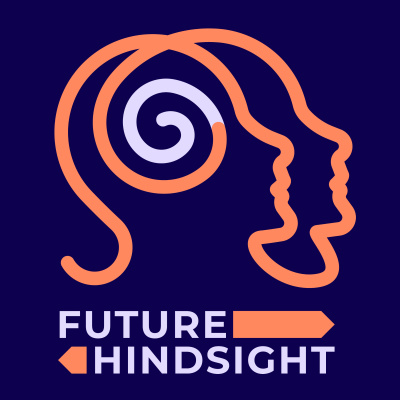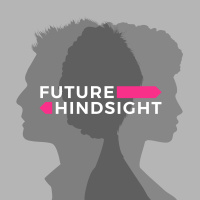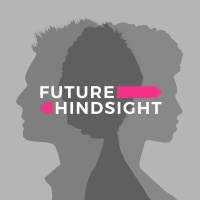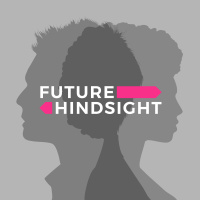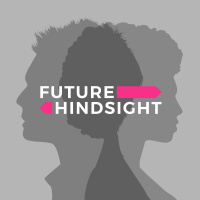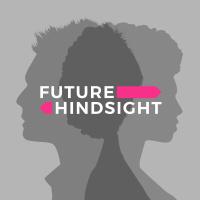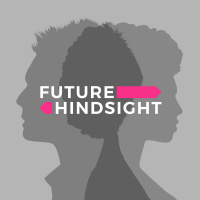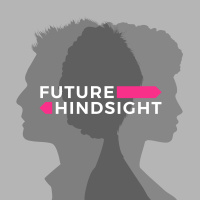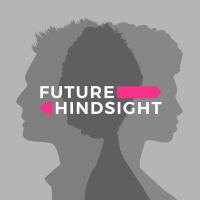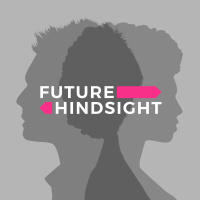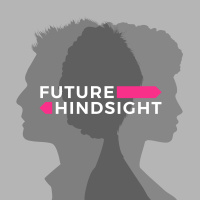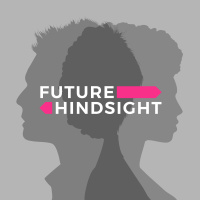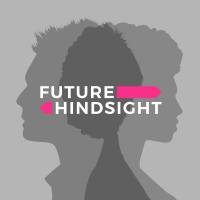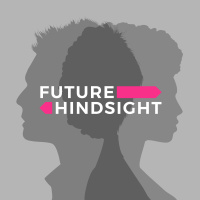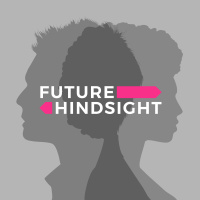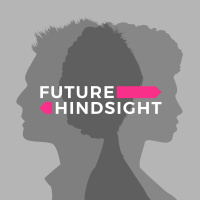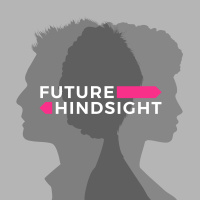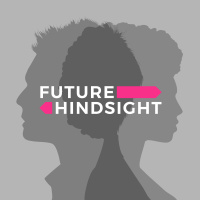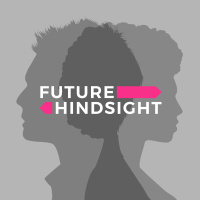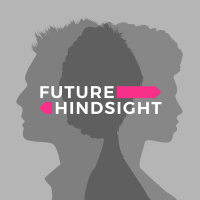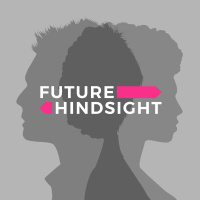Synopsis
Exploring the intersection of civic engagement and civil discourse.
Episodes
-
Michael Faye
18/08/2018 Duration: 23minMichael Faye is the president and co-founder of GiveDirectly, an organization that sends cash directly to people living in extreme poverty. We discuss why we should use cash as a new benchmark for international aid, unpack false assumptions about decision-making, and examine the benefits of universal basic income. Prioritizing individual needs is effective Humans largely make creative and wise decisions for themselves and their families. Despite a common belief to the contrary, the poor are good decision makers. Their track record in maximizing positive utility out of the funds they receive is better than aid organizations. Moreover, the freedom of choice provides dignity to the recipients. We need to empower more people with the agency to do what they consider best for themselves. Cash as a new benchmark In theory, we can end poverty today. Over $140 billion in global aid money is spent per year, while the global poverty gap is now estimated to be about half that amount. The data has shown that cash transfer
-
Maria Yuan
11/08/2018 Duration: 24minMaria Yuan is the founder of Issue Voter, an organization whose mission is to make civic engagement accessible, efficient, and impactful. We talk about the importance of being informed on the bills before Congress, communicating your priorities and opinions to your representative, and understanding whether your rep is truly representing you. Our voice matters One of the benefits of living in a democracy is making our voices heard. In fact, representatives keep track of constituent contact in order to better understand how their community prioritizes issues. They also appreciate expanding their communication beyond the actively engaged core constituents. Technology enables voters to have efficient and impactful communication with their representatives. Transparency Today’s technology helps us track how representatives vote, so we know if they are truly representing us. Based on a representative’s legislative voting record, we can make an educated decision on whether to re-elect our representatives or vote them
-
Rachel Leyland and Dr. Kendra Abel
04/08/2018 Duration: 25minRachel Leyland and Kendra Abel are public school teachers in Oklahoma City who participated in the walkout in April of 2018. We discuss how the walkout shed light on the problems caused by chronic underfunding of public education, the power of standing together to demand change, and the importance of supporting pro-education candidates for office. Support for Public Education Bolsters Democracy Chronic underfunding and continued cuts to public education have grave consequences. In Oklahoma, teachers and parents are supplementing educational programs out of their own pockets in order to level the playing field with education in other states. Teachers are underpaid and are forced to take second jobs, or even leave the state for better pay. Our Humanity A good education transforms lives. Our humanity is at stake when we forsake the future of our children. We need to teach them to have critical thinking skills, a vision for a better tomorrow, the tools to participate in our democracy, and an innate understanding
-
Scott Warren
28/07/2018 Duration: 25minScott Warren is the CEO and co-founder of Generation Citizen, an organization that works to ensure students in the United States receive an effective civics education. We talk about the unique power of political action to bring about change and the need to teach our youngest generations how to be active participants in our democracy. Political action is still king All of the important issues that affect our daily lives touch the government in some way. Politics is a powerful agent for systemic change within government. The more frustrated we are, the more imperative it becomes to participate. The problems in our democracy run deep One of the most reliable predictors of voting behavior is income: the participation rate is 80% at $80,000 or more, and only 40% at $40,000. We need to invest in teaching all citizens, and especially young people, their rights and responsibilities in a democracy. Action Civics is an essential part of the answer Action-oriented civics education in school should be prioritized like ST
-
Brent Wilkes
21/07/2018 Duration: 24minBrent Wilkes is the former CEO of the League of United Latin American Citizens (LULAC) and a lifelong advocate for Latino rights. We discuss what fair and comprehensive immigration could be, the positive impact of immigrant labor in the US economy, and how we can demand sound immigration policy at the ballot box. Our economy depends on immigrant labor Immigrants are doing some of the hardest jobs in America for the lowest amount of pay, such as producing food, building houses, and providing care. Labor abuse is common with undocumented workers, as their status makes them particularly vulnerable. Providing a path to legalization for these individuals is the least we can do. Comprehensive immigration reform The goal is to help out-of-status residents, those who work hard and contribute to the economy, to get right with the law. Three major focus areas are: the Dreamers, children who were brought to the US by their parents as minors; the agricultural sector, which produces major exports to the rest of the world
-
Mark Hetfield
14/07/2018 Duration: 26minMark Hetfield is the President and CEO of HIAS, the oldest refugee assistance organization in operation. We discuss our humanitarian obligations to refugees, the tremendous benefits that they bring to American society, and bust the misconceptions about the current refugee situation in the US. Taking refugees is an act of humanity: Refugees have escaped persecution, their country, their homes, and their jobs in order to survive. The Refugee Convention of 1951 is an international law that requires countries to give them protection. We bring refugees to the US because it’s a way to protect human rights and our collective humanity. Refugees are a tremendous positive force: They are among the most productive members of society because they have lost everything, and they know that they can’t take anything for granted. In the US, refugees have contributed many billions of dollars more than they take in services. Some of our most successful companies, such as Google and Intel, were started by refugees. We have enormo
-
Paul Lagunes
07/07/2018 Duration: 25minPaul Lagunes is a Columbia University political scientist whose scholarship focuses on corruption in the Americas. His current book project is Corruption and Oversight: Insights from Field Experiments. We define corruption, discuss how it relates to democracy, and learn that voting is a tool to fight against it. Corruption is a contingent behavior In a world of multiple equilibriums, the rules of the game differ from place to place, thus it may be rational to engage in corruption in certain contexts. The same individual will behave one way in one setting and another way in another setting. Corruption involves costs for societies at large. The losers are every day, law-abiding citizens. The Watchful Eye and the Cracking Whip Both transparency and punishment are essential. We need to make clear and visible that everyone who participates in corruption is punished because revealing corruption without punishment emboldens bad actors. They feel and seem empowered. Government agencies and oversight non-governmental
-
Ian Bremmer
26/05/2018 Duration: 32minRaise consciousness: Globalists have been willing to stand by while many people were left behind. Elites need to acknowledge their complicity in order to reverse the increasing division between us and them, as well as make clear to people in power that the current version of globalism is not acceptable. More experiments are necessary: The only effective way to tackle global issues is to start experimenting around possible solutions, each of us in the ways that we can. There are already many interesting projects ranging from continuing education for workers to flexible employment. Everyone who has the ability to do something on this issue, must do so. Invest in humans: The role of the government is to promote equal access to opportunity, so that all people are included in the system. Maximizing profit is not human, but it is capitalist. Injecting humanity into public policies on diverse issues like refugees or free community college will create a society where a gig economy can support families and provide a p
-
Shafi Goldwasser
19/05/2018 Duration: 33minShafi Goldwasser is an award-winning mathematician and computer scientist and the Director of the Simons Institute for the Theory of Computing at UC Berkeley. Her most notable work is in cryptography and zero knowledge proof. We discuss the promise of cryptography to make our society more secure. Data privacy and you: Cryptography is the field that deals with the privacy and correctness of how our information is used. It makes our data more secure, with a range of tools such as encryption, authentication, and verification. Every time we are online, we need to be vigilant about what private information we share and with whom. We should use the tools of cryptography and be careful about giving permissions for apps to access our data. Algorithmic Fairness and Data Bias: We have an idea that algorithms are fair because they are machine computations. However, algorithms do no account for actual individuals, so the data is trained with existing societal norms, which can perpetuate unfairness. Data can also be
-
Jennifer March
12/05/2018 Duration: 27minJennifer March is the Executive Director of the Citizen’s Committee for Children of New York. This non-profit and nonpartisan child advocacy organization combines public policy research and data analysis with citizen action. We discuss family homelessness, juvenile justice, and the power of effective advocacy. Growing up poor likely leads to long term damaging outcomes: Every child should be guaranteed a prosperous environment with proper access to health care, housing, education, and safe living conditions. Children in poverty often face multiple risk factors such as poor quality housing and low-quality schools. Effective child advocacy requires a coalition: A virtuous circle of a large group of people with a common interest is the most effective in pushing for change. Everyone ranging from service providers and beneficiaries, advocates lobbying the government, volunteers writing letters and making phone calls, social media, as well as participants in visible rallies come together to be heard. A holistic app
-
Beto O'Rourke
05/05/2018 Duration: 27minDemocratic Congressman Beto O’Rourke represents his hometown, El Paso, TX. Currently a Candidate for US Senate, he is running a people-powered campaign, visiting every single county in Texas and listening to the needs and concerns of the state’s constituents. We talk about how to rebuild our democracy, the necessity of bipartisanship, and how big money corrodes our political process. Rebuilding democracy from the ground up: We need representatives who truly represent the people by directly engaging with and listening to their constituents. Removing the power of political action committees (PACs), special interests, and corporations is vital to getting our democracy back and making sure that elected government is responsive to the interests and concerns of human beings. Work together and set aside differences: Achieving bipartisan collaboration comes through putting the small differences, including parties, behind us. Compromise is key in being able to pass legislation that will benefit all Americans on issues
-
Ruth Milkman
28/04/2018 Duration: 31minRuth Milkman is a sociologist of labor and labor movements, and Distinguished Professor of Sociology at the CUNY Graduate Center and at the Joseph S. Murphy Institute for Worker Education and Labor Studies. We examine the role of unions for workers, the main factors of de-unionization, and the potential leadership by millennials in this space. It’s safer to speak up as a group: The purpose of unions is to give workers a collective voice in relation to their employers. They also negotiate contracts and collective bargaining agreements, and promote and defend workers’ concerns in the public and political spheres. Factors that led to the decline of unionization: Employer opposition is at the heart of the de-unionization. They have successfully mounted a series of direct attacks against them, such as double breasting in the construction industry. Two other big factors are the decline of manufacturing and deregulation. The time to engage is now: Many workers experience precarious labor conditions, such as in retai
-
Robert Hammond
21/04/2018 Duration: 27minRobert Hammond is the executive director and co-founder of Friends of the High Line, which was the driving force behind turning an abandoned elevated railroad in New York City into a public park. We discuss the essential role of a city’s public open spaces and how exhilarating it is to pursue your dreams. Parks are at the intersection of social issues: Parks have a role in our social issues from economic injustice to education and the environment. A city’s true ingredient is people, and parks allow for the ultimate human experience of people watching, voyeurism, and interacting with others. All communities benefit from having safe, free, and open public spaces. Get involved in your city: Community board meetings are open to the public, and they always need people to get involved. They’re only as good as the people who participate. Many opportunities exist to volunteer in your area of interest and expertise. Go after your dreams: Pursuing a crazy idea is freeing, fun, and exciting. Perseverance and skepticism
-
Nick Ehrmann
14/04/2018 Duration: 25minNick Ehrmann is the founder and president of Blue Engine, which was borne from the discovery that the strongest predictor of college completion is sustained academic rigor in high school coursework. The organization re-imagines the classroom in order to teach students how to master core academic skills and be truly ready for college. Prepare for success College readiness is defined by the ability to persist and complete degrees. We need to equip students with skills and habits of mind that allow them to have true choice at the cusp of adulthood, whether it is in college, a technical trade school, or the work force. Proximity matters Education systems need to be designed with the students at the center. Strong, integral, human relationships between educators and students are directly correlated with high levels of academic rigor and success. Taking action can take many different forms Get out of your space, fight stereotypes, and challenge your assumptions. Do something where you are informed, proximate, and e
-
Tyler Ruzich
07/04/2018 Duration: 22minTyler Ruzich is a 17-year old Republican candidate for governor of Kansas, one of eight teens in the race this year. We discuss what it means to be a Republican of the next generation, why it’s important to get involved now, and what young people can do to become more engaged. Young people offer fresh perspectives: We can make better decisions when we are well informed and more educated. Young people bring ideas and perspectives that may not have been considered before. They’re eager to do something and bring authenticity to the table. Evolve and Change: Political parties need to shift along with cultural and societal changes. Addressing the issues that are important to young people – LGBTQ rights, gun control, education – is a way to prepare for the future. Be Responsible, Get Involved: Take charge, do good, and take accountability for yourself. Serve on a teen council and learn how governmental issues are addressed. Volunteer for a congressional, state, or local race in 2018 or 2020. The best person to figh
-
Season 2 Trailer
31/03/2018 Duration: 56sA sneak peek of our next episode: civic engagement requires no minimum age. Tyler Ruzich, 17-year old Kansan, shows us how.
-
Ai-Jen Poo
10/03/2018 Duration: 21minIn the 8th and last episode of Season 1, we discuss the elder boom, and the increasing importance of home care and domestic work in our society. Award-winning activist Ai-Jen Poo, a leading advocate for domestic workers’ rights and family care, discusses the challenges of the elder boom. She lays out how home care can help us face the coming demographic change and the ways in which we can engage to demand a new Caring infrastructure. The Care Crisis is Here: Baby boomers are aging at a rate of 10,000 people per day. This means that 4 million turn 65 every year. The 85 and older demographic is the fastest growing demographic in the country. The demand for care workers is exploding, but we have no program in place to support these people to be able to afford elder care. Home Care is the Future: Elders want to age at home. It is cheaper and has better outcomes. Good care giving is the best prevention, which avoids unnecessary and expensive end-of-life hospitalization or institutionalization. We need a Care infr
-
Andrea Miller (Part 2)
06/03/2018 Duration: 20minAndrea Miller is the president of the National Institute for Reproductive Health. We talk about the broad support among men for Roe vs. Wade, the Hyde Amendment, and the two most damaging misconceptions about abortions. This interview belongs to a two-part episode in which we discuss the importance of reproductive rights and why we should engage with this issue for the general welfare of our communities. Listen to the first part here. Men Are Supportive: There is no huge gender gap in attitudes and opinions about support for Roe vs. Wade. Men are also outraged by laws that shame, pressure, and punish women who have decided to have an abortion. They care about health and safety, individual rights, and autonomy. Hyde Amendment: Federal government health coverage does not cover abortion care. This affects a wide range of women from those who work for the federal government or serve in the military to those who receive healthcare through Medicaid and Indian Health Services. The amendment is a rider, which means t
-
Andrea Miller (Part 1)
03/03/2018 Duration: 24minAndrea Miller is the president of the National Institute for Reproductive Health. We talk about the impact that reproductive legislation has in society and how it’s historically been affected by safety and public health concerns. This interview belongs to a two-part episode in which we discuss the importance of reproductive rights and why we should engage with this issue for the general welfare of our communities. Listen to the second part here. Learn the Facts: Polls show that 80% of the public supports safe, affordable, quality abortion care, as long as it is legal, which it is. The percentage of women who are already mothers and obtain an abortion is 59%. The highest abortion rate is among women who are 20 to 29 years old. A woman spends approximately 30 years of her life trying not to get pregnant. Say no to taboos: Treat talking about reproductive rights and health like talking about healthcare issues that affects all families in our communities. One in four women have an abortion in their lifetime.
-
Joe Hartigan
24/02/2018 Duration: 25minJoe Hartigan has cracked the code on how to effect change. He is a retired NYC Fire Department lieutenant and community activist since 1995. His passion, dedication, and consistency over many years brought about ferry service for the residents of Rockaway, Queens. Every community would benefit from a fervent advocate like Joe. We can become advocates for our communities by focusing on specific issues, joining forces, and staying persistent. Show Up: Showing up and pushing the point helps you to stay focused and keep going. Planning meetings, community board meetings, and conferences are excellent opportunities to speak to officials, share your priorities, and demand accountability. Use Your Passion: Pick something that is important to you because not everybody is going to be as committed as you to show up consistently. Be willing to dip into your own pocket. Do your research and become an expert. Learn how others have achieved their civic goals. Make Your Cause a Political Issue: Push your civic agenda by hig
